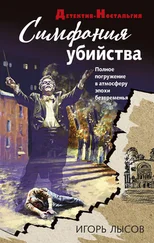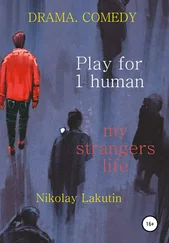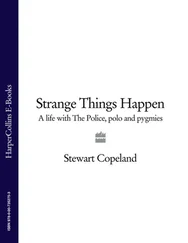Douglas Hofstadter - I Am a Strange Loop
Здесь есть возможность читать онлайн «Douglas Hofstadter - I Am a Strange Loop» весь текст электронной книги совершенно бесплатно (целиком полную версию без сокращений). В некоторых случаях можно слушать аудио, скачать через торрент в формате fb2 и присутствует краткое содержание. Жанр: Прочая документальная литература, на английском языке. Описание произведения, (предисловие) а так же отзывы посетителей доступны на портале библиотеки ЛибКат.
- Название:I Am a Strange Loop
- Автор:
- Жанр:
- Год:неизвестен
- ISBN:нет данных
- Рейтинг книги:4 / 5. Голосов: 1
-
Избранное:Добавить в избранное
- Отзывы:
-
Ваша оценка:
- 80
- 1
- 2
- 3
- 4
- 5
I Am a Strange Loop: краткое содержание, описание и аннотация
Предлагаем к чтению аннотацию, описание, краткое содержание или предисловие (зависит от того, что написал сам автор книги «I Am a Strange Loop»). Если вы не нашли необходимую информацию о книге — напишите в комментариях, мы постараемся отыскать её.
I Am a Strange Loop — читать онлайн бесплатно полную книгу (весь текст) целиком
Ниже представлен текст книги, разбитый по страницам. Система сохранения места последней прочитанной страницы, позволяет с удобством читать онлайн бесплатно книгу «I Am a Strange Loop», без необходимости каждый раз заново искать на чём Вы остановились. Поставьте закладку, и сможете в любой момент перейти на страницу, на которой закончили чтение.
Интервал:
Закладка:
Just at that moment, church bells began to ring out, mingling with the song of the birds in the sunshine. These were the early bells that preceded the main bells by half an hour. For me, though, they were a voice from Heaven. I threw my slingshot down, startling the birds so that they flew off to a spot safe from my companion’s slingshot, and I fled home.
Ever since that day, whenever the bells of Holy Week ring out amidst the leafless trees of spring, I have remembered with deep gratitude how on that fateful day they rang into my heart the commandment: “Thou shalt not kill.” From that day on, I swore that I would liberate myself from the fear of other people. Whenever my inner convictions were at stake, I gave less weight to the opinions of other people than I once had. And I did my best to overcome the fear of being mocked by my peers.
Here we have a classic conflict between peer pressure and one’s own inner voices, or as we usually phrase it (and as Schweitzer himself put it), one’s conscience. In this case, fortunately, conscience was the clear winner. And indeed, this was a decision that lasted a lifetime.
Does Conscience Constitute Consciousness?
In this region of semantic space there is one further linguistic observation that strikes me as most provocative. That is the fact that in the Romance languages, the words for “conscience” and “consciousness”, which strike us English speakers as very distinct concepts, are one and the same (for example, the French word conscience has both meanings, a fact that I learned when, as a teen-ager, I bought a book entitled Le cerveau et la conscience ). This may merely be a lexical gap or a confusing semantic blur in these languages (the meaning on a literal level is “co-knowledge”), but even if that’s the case, I nonetheless think of it as offering us an insight that might otherwise never occur to us: that the partial internalization of other creatures’ interiority (conscience) is what most clearly marks off creatures who have large souls (much consciousness) from creatures that have small souls, and from yet others that have none or next to none.
I think it’s obvious, or nearly so, that mosquitoes have no conscience and likewise no consciousness, hence nothing meriting the word “soul”. These flying, buzzing, blood-sucking automata are more like miniature heat-seeking missiles than like soulful beings. Can you imagine a mosquito experiencing mercy or pity or friendship? ’Nough said. Next!
What about, say, lions — the very prototype of the notion of carnivore? Lions stalk, pounce on, rip into, and devour giraffes and zebras that are still kicking and braying, and they do so without the slightest mercy or pity, which suggests a complete lack of compassion, and yet they seem to care a great deal about their own young, nuzzling them, nurturing them, protecting them, teaching them. This is quite unmosquito-like behavior! Moreover, I suspect that lions can easily come to care for certain beasts of other species (such as humans). In this sense, a lion can and will internalize certain limited aspects of the interiority of at least some other creatures (especially those of a few other lions, most particularly its immediate family), even though it may remain utterly oblivious to and indifferent to those of most other creatures (a quality that sounds depressingly like most humans).
I think it’s also obvious, or nearly so, that most dogs care about other creatures — particularly humans who belong to their inner circle. Indeed, it’s well known that some dogs, displaying incredible magnanimity, will lay down their lives for their owners. I have yet to hear about a lion doing such a thing for any animal of another species, although I suppose some dog-like lion, somewhere or other, may have once fought to the death against another beast in order to save the life of a human companion. It’s a bit too much of a stretch, however, to imagine a lion choosing to be a vegetarian.
And yet a quick Web search shows that the idea of a vegetarian lion is not all that rare (usually in fiction, admittedly, but not always). Indeed, such a lion, a female named “Little Tyke”, was apparently brought up as a pet near Seattle. For four years (so says the Web site), Little Tyke refused all meat offered her until finally her owners gave up trying and accepted her vegetarian ways and her joy at playing with lambs, chickens, and other beasts. Until her dying day, Little Tyke was a vegetarian lion. Will miracles never cease?
In any case, having a conscience — a sense of morality and of caring about doing “the right thing” towards other sentient beings — strikes me as the most natural and hopefully also the most reliable sign of consciousness in a being. Perhaps this simply boils down to how much one puts into practice the Golden Rule.
Albert Schweitzer and Johann Sebastian Bach
I have to admit that I have always intuitively felt there was another and quite different yardstick for measuring consciousness, although a most blurry and controversial one: musical taste. I certainly cannot explain or defend my own musical taste, and I know I would be getting myself into very deep, hot, and murky waters if I were to try, so I won’t even begin. I will, however, have to reveal a little bit of my musical taste in order to talk about Albert Schweitzer and his musical profundity.
For my sixteenth birthday, my mother gave me a record of the first eight preludes and fugues of Book One of J. S. Bach’s monumental work, The Well-Tempered Clavier, as played on the piano by Glenn Gould. This was my first contact with the notion of “fugue”, and it had an electrifying effect on my young mind. For the next several years, every time I went into a record store, I would seek out other parts of The Well-Tempered Clavier on piano, for it was a genuine rarity those days (even on harpsichord, but especially on piano, which I preferred). Every time I found a new set of preludes and fugues from either volume, the act of putting the needle down in the grooves of the new record and listening to it for the first time was among the most exciting events in my life.
In my parents’ record collection, there was also a recording of several Bach organ works as performed by Albert Schweitzer, but it took me a long time to come around to giving it a try, because I feared it would be too “heavy”. But when I finally did, what I heard was incredibly moving and I became as addicted to it as I had ever been to The Well-Tempered Clavier. I then naturally expanded my search in record stores to include Bach organ works, but I soon discovered something that troubled me, which was that many performers took them very swiftly and jauntily, as if they were merely virtuoso exercises as opposed to profound statements about the human condition. Schweitzer’s playing was humble and simple, and it charmed me that he made mistakes now and then but simply went on unperturbedly (in no other recordings would one hear even a single mistake anywhere, which struck me as unnatural and even bizarre). It also happened, although I didn’t know it then, that these performances had all been recorded on a simple organ in the very church in the Alsatian village of Günsbach whose bells had pealed one bright spring morning, saving the lives of a bird or two, and transforming young Albert’s life, and therewith, the lives of thousands of people.
Dig that Profundity!
Over the years, Bach as played by Schweitzer became a deep part of me. I obtained several more recordings by him, all belonging to the same series, each one revealing new depths of a cosmic wisdom (perhaps that sounds grandiose, but to me it is exactly on the mark) that emanated from both composer and performer.
Читать дальшеИнтервал:
Закладка:
Похожие книги на «I Am a Strange Loop»
Представляем Вашему вниманию похожие книги на «I Am a Strange Loop» списком для выбора. Мы отобрали схожую по названию и смыслу литературу в надежде предоставить читателям больше вариантов отыскать новые, интересные, ещё непрочитанные произведения.
Обсуждение, отзывы о книге «I Am a Strange Loop» и просто собственные мнения читателей. Оставьте ваши комментарии, напишите, что Вы думаете о произведении, его смысле или главных героях. Укажите что конкретно понравилось, а что нет, и почему Вы так считаете.












